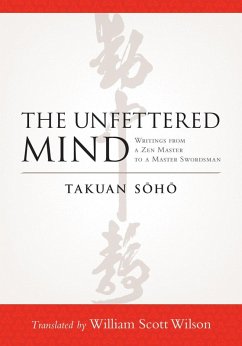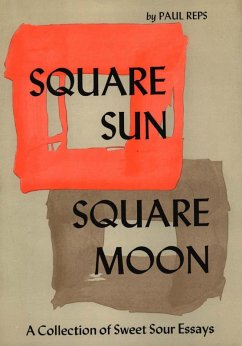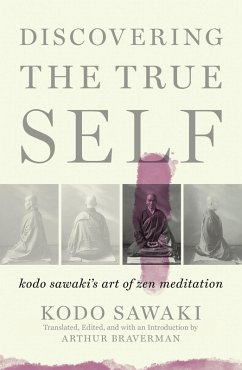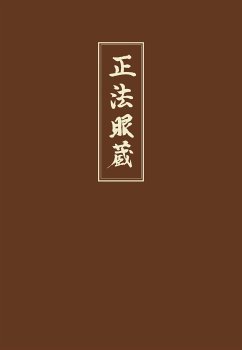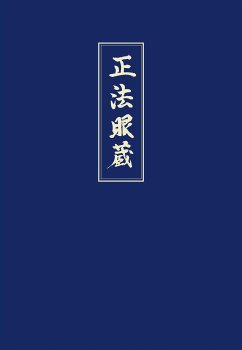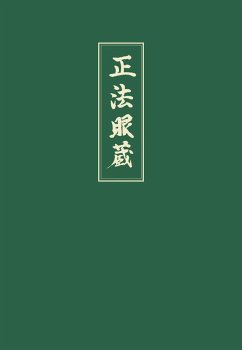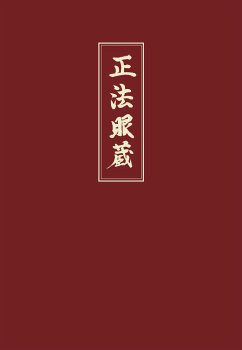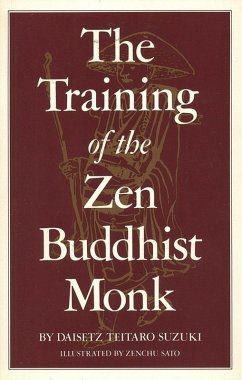
The RelIgion of the Samurai: A Study of Zen Philosophy and Discipline in China and Japan (eBook, ePUB)

PAYBACK Punkte
0 °P sammeln!
Bushido, "the way (or the moral) of the warrior") is a Japanese term describing a codified samurai way of life, loosely analogous to the concept of chivalry in Europe.The "way" originates from the samurai moral values, most commonly stressing some combination of frugality, loyalty, martial arts mastery, and honor until death. Born from Neo-Confucianism during times of peace in Tokugawa Japan and following Confucian texts, Bushido was also influenced by Shinto and Zen Buddhism, allowing the violent existence of the samurai to be tempered by wisdom and serenity. Bushido developed between the 16t...
Bushido, "the way (or the moral) of the warrior") is a Japanese term describing a codified samurai way of life, loosely analogous to the concept of chivalry in Europe.
The "way" originates from the samurai moral values, most commonly stressing some combination of frugality, loyalty, martial arts mastery, and honor until death. Born from Neo-Confucianism during times of peace in Tokugawa Japan and following Confucian texts, Bushido was also influenced by Shinto and Zen Buddhism, allowing the violent existence of the samurai to be tempered by wisdom and serenity. Bushido developed between the 16th and 20th centuries, debated by pundits who believed they were building on a legacy dating back to the 10th century, although some scholars have noted that the term bushido itself is "rarely attested in pre-modern literature".
Under the Tokugawa shogunate, some aspects of warrior values became formalized into Japanese feudal law.
The word bushido was first used in Japan during the 17th century in Koyo Gunkan, but did not come into common usage until after the 1899 publication of Nitobe Inazo's Bushido: The Soul of Japan. In Bushido (1899), Nitobe wrote:
Bushido, then, is the code of moral principles which the samurai were required or instructed to observe ... More frequently it is a code unuttered and unwritten ... It was an organic growth of decades and centuries of military career. In order to become a samurai this code has to be mastered.
Nitobe was not the first to document Japanese chivalry in this way. In Feudal and Modern Japan (1896), historian Arthur May Knapp wrote: "The samurai of thirty years ago had behind him a thousand years of training in the law of honor, obedience, duty, and self-sacrifice ... It was not needed to create or establish them. As a child he had but to be instructed, as indeed he was from his earliest years, in the etiquette of self-immolation."
The "way" originates from the samurai moral values, most commonly stressing some combination of frugality, loyalty, martial arts mastery, and honor until death. Born from Neo-Confucianism during times of peace in Tokugawa Japan and following Confucian texts, Bushido was also influenced by Shinto and Zen Buddhism, allowing the violent existence of the samurai to be tempered by wisdom and serenity. Bushido developed between the 16th and 20th centuries, debated by pundits who believed they were building on a legacy dating back to the 10th century, although some scholars have noted that the term bushido itself is "rarely attested in pre-modern literature".
Under the Tokugawa shogunate, some aspects of warrior values became formalized into Japanese feudal law.
The word bushido was first used in Japan during the 17th century in Koyo Gunkan, but did not come into common usage until after the 1899 publication of Nitobe Inazo's Bushido: The Soul of Japan. In Bushido (1899), Nitobe wrote:
Bushido, then, is the code of moral principles which the samurai were required or instructed to observe ... More frequently it is a code unuttered and unwritten ... It was an organic growth of decades and centuries of military career. In order to become a samurai this code has to be mastered.
Nitobe was not the first to document Japanese chivalry in this way. In Feudal and Modern Japan (1896), historian Arthur May Knapp wrote: "The samurai of thirty years ago had behind him a thousand years of training in the law of honor, obedience, duty, and self-sacrifice ... It was not needed to create or establish them. As a child he had but to be instructed, as indeed he was from his earliest years, in the etiquette of self-immolation."
Dieser Download kann aus rechtlichen Gründen nur mit Rechnungsadresse in A, B, CY, CZ, D, DK, EW, E, FIN, F, GR, H, IRL, I, LT, L, LR, M, NL, PL, P, R, S, SLO, SK ausgeliefert werden.




